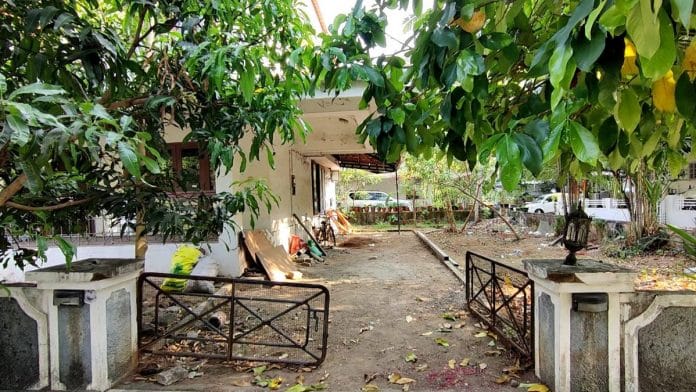Kochi: House No. 20 in Kochi’s high-end Choice Village residential complex has a creaky gate and cobwebbed, broken windows. It has been empty for 23 years. And many called it haunted.
Residents of the locality heard eerie piano music coming from the house at night.
The owners rarely visit this house, much like those of 1.19 million other empty homes in Kerala.
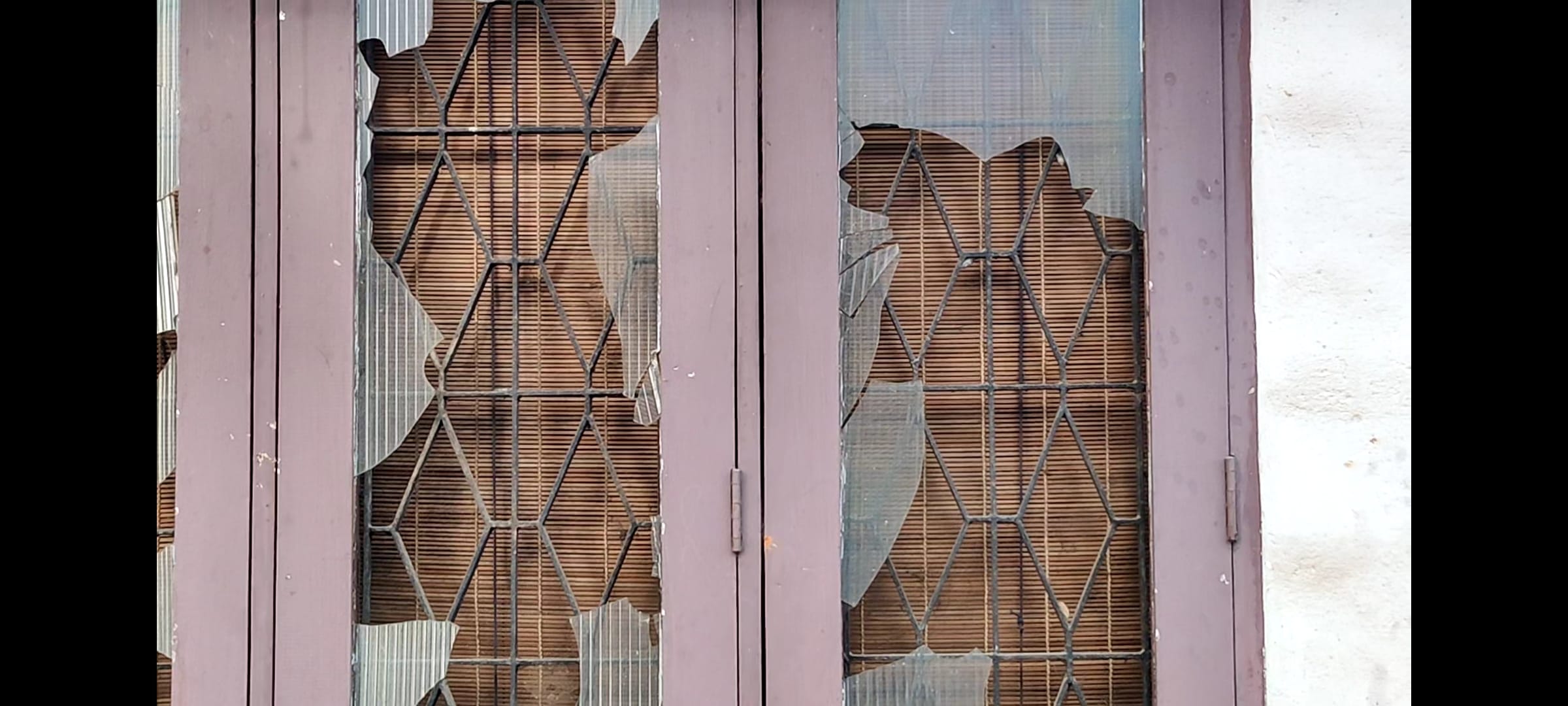
The haunted house mystery was solved in time. It wasn’t a ghost playing the piano but mice triggering the doorbell’s weak electricity connection as they scurried through its walls in the night.
But the bigger problem remained. What should Kerala do with its empty, ghost houses?
From old ancestral homes to new posh residential villas of Choice Village, the state is reckoning with its massive diaspora population who leave their homes behind. All these homes have active electricity and water supplies — a service delivery the state pays for — but no one lives in them. According to local government’s data from 2011 Census, 11 per cent of the total 10 million houses in the state are vacant, much higher than the national average of 7.45 per cent.
The numbers point to Kerala’s changing economic and social demographics. When introducing the state budget on 3 February 2023, the state government briefly considered imposing an additional property tax on the owners of these empty houses, specifically NRIs or those with more than one house in the state. But it withdrew the proposal within a month.
“The ghost houses are created by a ghost state and its ghost economy,” said 68-year-old Sajeevan, a businessman and president of Choice Village’s Resident Welfare Association. Only 28 of the residential colony’s 40 luxury villas are occupied.
“People don’t live in them, all kinds of other creatures do,” added Sajeevan. “And those who choose to live here have to pay the price.”
Also read: Jamaat-e-Islami Hind is the new Sarkari Mussalman in Kerala after meeting RSS
An aging, absent population
A state full of empty houses points to a deeper economic problem.
Kerala has a huge diaspora but an ageing and absent population living in the state.
Its migration mathematics is often summed up as ‘three million Malayalis living in the Middle East and three million migrants living in Kerala.’
Empty ancestral homes that are increasingly hard to maintain is only one side of the coin. The other side is the wealth that’s coming into the state— NRIs build huge, fancy homes or buy new properties to eventually retire to. At most, they visit their homes once or twice a year, usually on vacation or on family get-togethers.
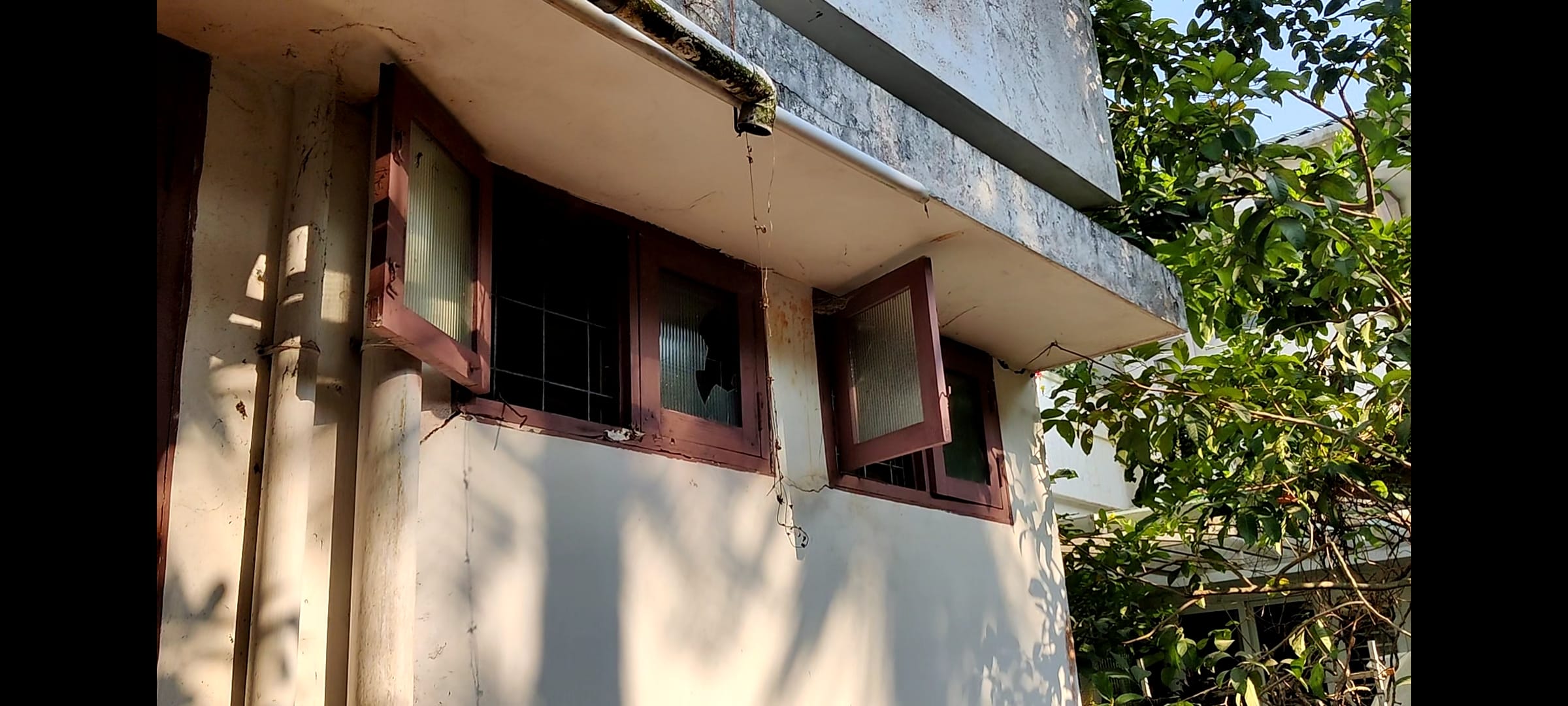
These large and empty homes are often the battlegrounds for family politics. Ancestral properties are carved up among multiple progenies, who then either build their own mini-houses within the larger property or sell it.
It’s not uncommon for estranged family members to sell their mini-property out of spite to an ‘outsider’, creating an issue for any future development plans like building high-rise condos on the consolidated property. This is a popular option for large families that become fragmented over generations. Each branch of the family can cash in and sidestep the cumbersome task of either maintaining the property or dividing it. But a family member could go rogue, refuse to pitch their share of the property in, and force it into stagnation. All this while successive generations continue to live outside the country, state, or the nearest urban centre.
And the optics of it matter too: building a home is one of the few ways to flaunt wealth in Kerala. Real estate becomes the proof of the Malayalis’ prosperity abroad.
Many Malayali families, therefore, build new and improved mansions with the money they make abroad. The houses become larger and grander, embellishing traditional Kerala-style homes with sloping roofs, porches and large verandahs with indoor swimming pools, garages and in-house elevators.
An essay published on Onmanorama digs into whether such mansions are a “bane or a boon.” On the one hand, the writer argues, if someone built a luxurious house to signal their newly acquired affluence, it would “make their neighbours, who enjoy a stable job in their hometown itself, envious.” On the other hand, building a brand-new house creates more business for the local economy.
“No one wants to invest in anything other than property in Kerala,” said D Dhanuraj, chairman of Centre for Public Policy Research, Kochi, pointing to the state’s lack of market mechanisms. “What is the economic activity around these houses once they are built? Nothing.”
And by creating anxiety around additional property taxes, NRIs say that they’re being targeted unfairly, especially when they already pay property tax.
“The logical end to this is that people will stop building houses — that investment will also stop,” said Rajendran, managing director of a joint-venture multinational company. He owns houses in Kerala and has been based in Dubai since 1989. He said he visits Kerala two-three times a year, and spends about three-seven days. “In my opinion, this was an attempt to fleece people who can’t protest taxes outside the state.”
Also read: How Russia-Ukraine war led two Kerala natives to brew ‘Malayali’ beer in Poland
The economics of it
In the middle of the living room of his old ancestral home, surrounded by cobwebs hanging across balustrades and dusty photographs of generations of inhabitants, former journalist KSR Menon said Kerala has the potential to be the next Dubai, Singapore, or Hong Kong.
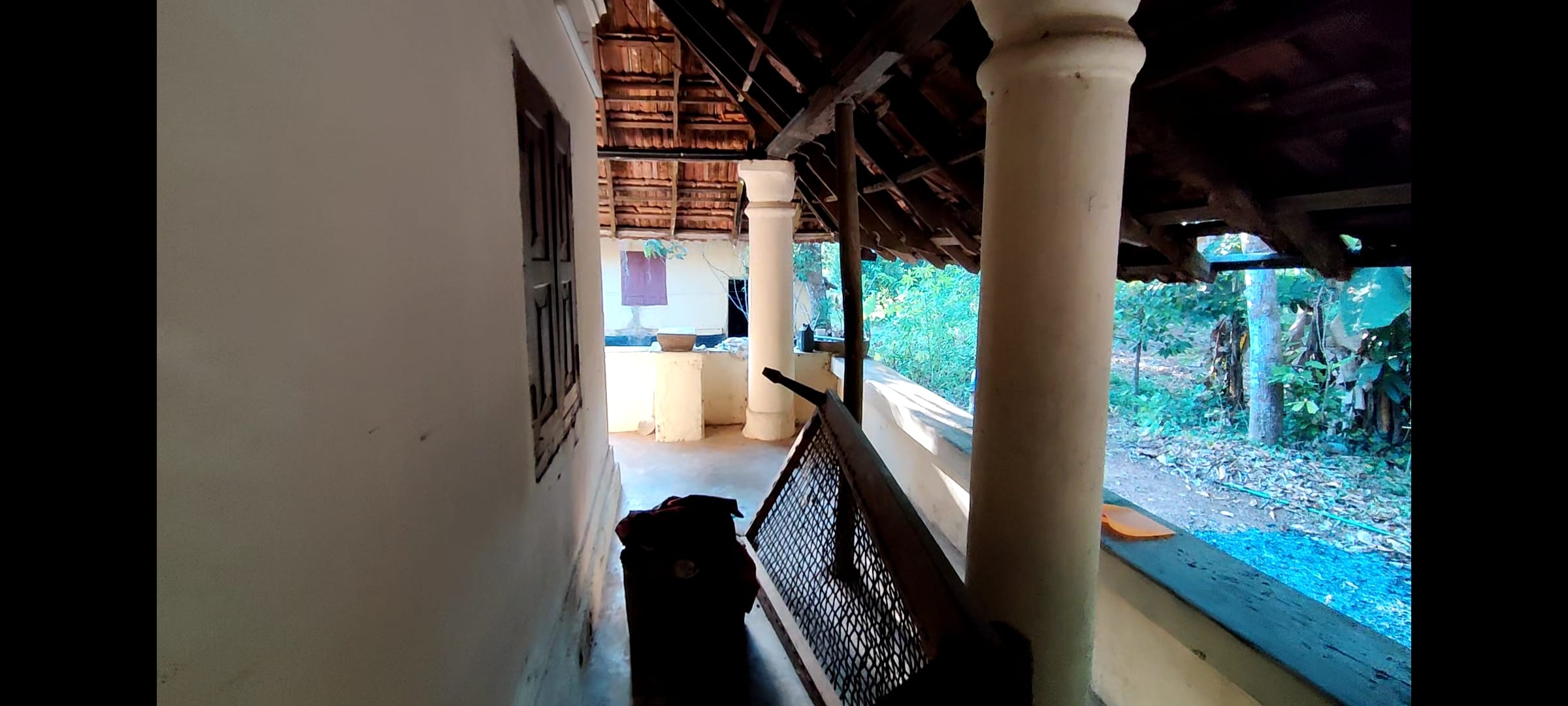
“The government shouldn’t be focused on raising taxes — it should be focused on growing the economy,” said Menon, who is also the founder-president of Kerala’s Democratic Social Justice Party. He pointed to the fact that the state government, which offers a lot of social security measures for its citizens, isn’t effectively capitalising on infrastructure and attracting foreign businesses to function out of Kerala.
Menon’s home — traditionally equipped with a cowshed and several outhouses — now stands empty just outside Kochi. No one has gone up to its second storey in years because they’re worried that the creaky stairs could collapse, and that the parapet wall has been slowly sinking. Its last proprietor was Menon’s uncle, who hasn’t lived in the house for the last six years. The house is so old that it has a ‘delivery room’— a feature common to upper-caste homes in the Malabar region because someone in the house was always invariably pregnant. Now, all former inhabitants of the house either live in more convenient apartments or have moved out of the state.
Menon himself lives about 20 minutes away, in an apartment on the banks of the Periyar River. The neighbouring apartment, owned by an NRI, is empty.
Menon envisions Kerala to be a future business hub. Its geographic location is better than business centers like Dubai or Hong Kong, and can attract better investments banking, tourism, health care, and education, according to him. The state’s economy, which had plateaued in the last few years, reported a strong recovery in 2021-22 with a rising Gross State Domestic Product, according to the economic review tabled in the Kerala Legislative Assembly in February.
Former Collector, Ernakulam and bureaucrat M P Joseph is a resident of Choice Village. He says that the proposal to tax empty houses was simply a foolish attempt to bring more money into the state coffers. But it was a doomed proposal from the start because Finance Minister Balagopal had cast the net a bit too far. “It would have been prejudicial to implement,” said Joseph. “Most of these tax proposals can rebound on the government. There’s so much you can take, and when you start taxing empty houses, that’s the last straw on the camel’s back.”
KSR Menon’s vision for Kerala as an economic powerhouse is at odds with the state’s socialist identity. Kerala spends largely on social welfare schemes but it hasn’t yet cracked the code to prevent ‘brain drain’ and keep its wealthy middle-class from migrating. Land, liquor, and lotteries keep Kerala’s economy moving, and the decision to increase the basic price of land could backfire.
Building new homes creates temporary economic activity, including labour for Kerala’s burgeoning population of migrants. But a vacant house doesn’t amount to much except taking up space.
And the state spends even on empty houses. It bears the cost of service delivery to such houses — laying pipelines for water, supplying an electricity connection. It’s running out of avenues to keep the money flowing.
Dhanuraj said that property as a fundamental right often comes up in discussions in a socialist state like Kerala. “This is a classic example of when property rights are not considered a fundamental right. Property is a natural choice when the avenues of investment elsewhere are lacking.”
Joe A Scaria, a former journalist whose video on the proposed tax went viral, asked a pertinent question. “Are these houses even empty when ghosts live in them?”
Local self-government
The problem of property tax is a critical stream of revenue for local self-government.
“It was only a proposal sent to the local self-governments. There is no move to implement the tax now,” said finance minister Balagopal in the state assembly, in a hurried walk-back of the tax.
The move is seen as an attempt by the Left Democratic Front (LDF) government to revise the state’s property tax structure — it was last revised in 2011. Earlier, the property tax was raised by 25 per cent every five years, and now it will be increased by 5 per cent annually. The new tax comes into effect from April 2023. The total revenue from property tax in Kerala stands at Rs 2,600 crore a year. An annual increase of 5 per cent will line the state’s coffers with an additional Rs 130 crore a year.
Municipalities and panchayats in Kerala are allowed to waive property tax on vacant homes. They collect property tax every six months. Local bodies in Kerala do have the mandate to increase taxes, but these proposals are often not approved by the state government. Taxation in Kerala is low compared to other states — even though the state has a per capita income of Rs 1.62 lakh . The state also has a significant middle-class tier.
“This raises the debate: to what extent should local governments be involved in these decisions?” said Dhanuraj. “Is taxation the right way forward, or should there be a better market mechanism to utilise these empty houses?”
Owners of empty houses can submit applications to their local bodies, which then send revenue officials to inspect the site. Based on their reports, local bodies are allowed to grant vacancy remission.
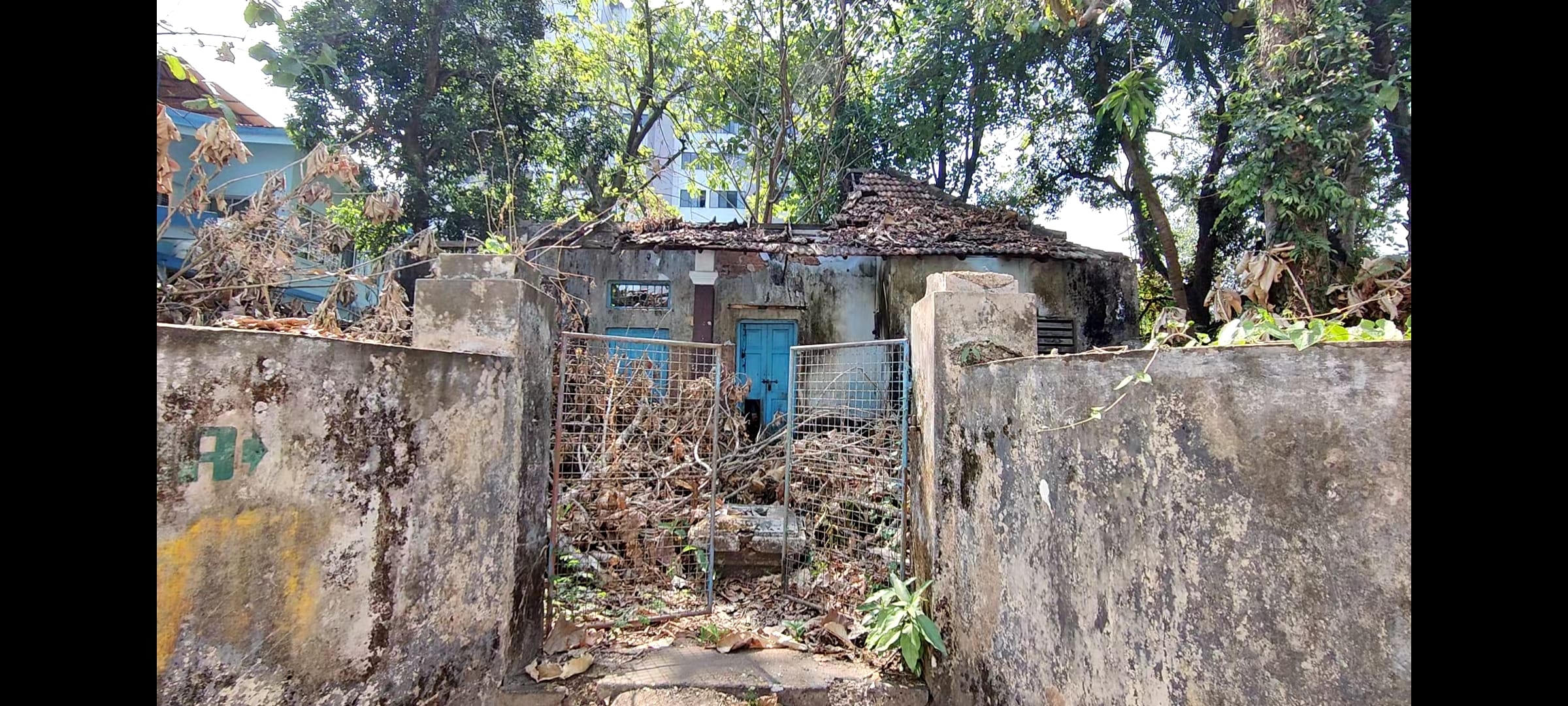
But no one seems to have a viable solution on what to do with the empty houses.
“I think the state should seriously consider turning empty properties into old-age resorts,” said Sajeevan, referring to Choice Village as a perfect location for such a project. He said that the state lacks a good cooperative society act and there’s no community living.
“Ghost houses have to be converted into community living,” Sajeevan declares standing on his balcony, the ghostly, abandoned House No. 20 looking unpromising in the background.
(Edited by Ratan Priya)



